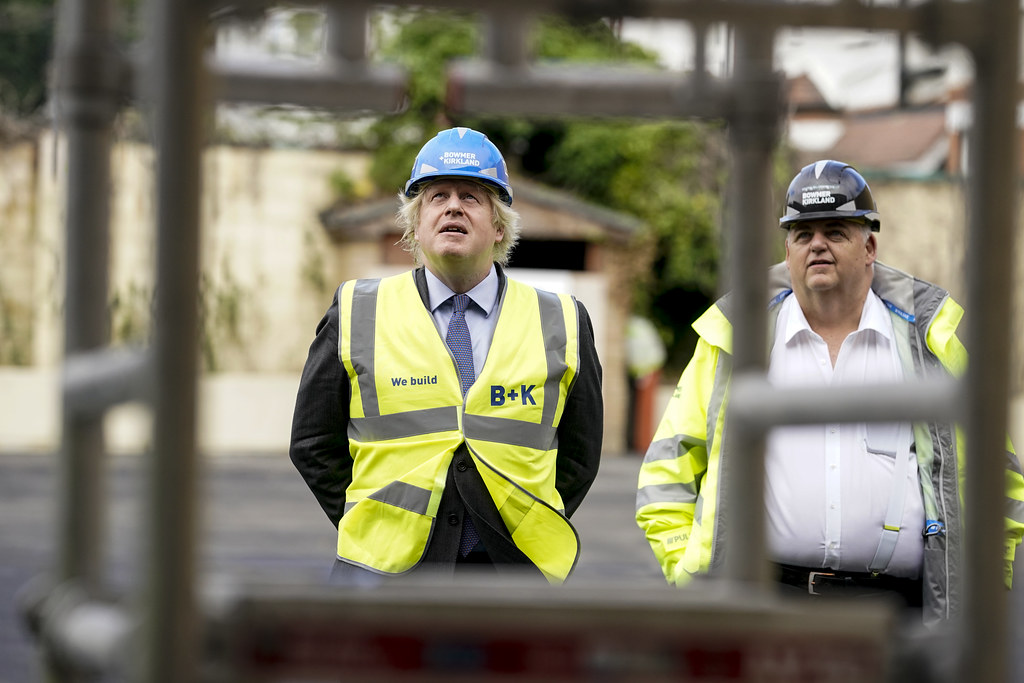Why Should Homeowners’ Safety Trump Everyone Else’s?
Only the rich deserve a safe home, it seems.
by Rivkah Brown
20 January 2022

The flames that raced up Grenfell Tower on the night of 14 June 2017 did not discriminate between the 115 properties that were socially rented and the 14 that were privately owned. Michael Gove does, though.
On 10 January, the secretary of state announced his plan to fix the cladding crisis, saying, “developers must pay”. Scrapping his predecessor Robert Jenrick’s plan to offer leaseholders low-interest governments loans to reclad their own homes, Gove took an uncharacteristic stand against the housing system’s injustice.
“It is neither fair nor decent,” he said, “that innocent leaseholders, many of whom have worked hard and made sacrifices to get a foot on the housing ladder, should be landed with bills they cannot afford to fix problems they did not cause.” So far, so fair. What Gove didn’t say, however, was that his plan – which will see developers and construction companies pay around £4bn to tidy up their mess – excluded the poor.
Thousands of leaseholders live in homes which fail fire safety standards because of faults other than cladding #Brighton
A straight question for the Minister: will they get the same level of protection?
His answer was frankly a disgrace so the fight goes on#BuildingSafetyBill pic.twitter.com/HT39xbMDE8
— Caroline Lucas (@CarolineLucas) January 19, 2022
More than half a million people are currently trapped in council homes so unsafe that they require urgent work – Gove’s plan made no mention of them. To the ‘levelling up’ secretary, only the richest 10% of Grenfell’s residents deserved saving – the ones who’d bought a product and hadn’t got what they’d paid for. The 90% who were reliant on state subsidy, however – like most of the 72 people who, five years ago, had no idea that they would soon burn to death in their homes – would just have to accept the flammable cladding they were given.
Gove’s announcement seemed uncharacteristic. Why would the party of business – the same party that deregulated construction in the 1980s, making it much easier to throw up tinderboxes like Grenfell – attack business?
Besides the obvious cost-cutting exercise – it’s a lot easier to get developers to pay for £4bn of privately-owned homes than the £15bn experts estimate it will take to fireproof Britain’s entire housing stock – Gove was in a tight spot. His ‘developers must pay’ campaign was a clumsy attempt to reconcile the interests of two of the Conservatives’ most critical constituencies: home-builders and home-buyers.
Ever since Margaret Thatcher set greed loose on social housing, Britain’s economy has teetered ever more precariously on real estate: our ratio of housing wealth to GDP currently outstrips Japan’s before its asset bubble burst in 1991.
Unsustainable as it is, this situation has locked the Conservatives and homeowners into a codependent relationship: homeowners need the Conservatives to protect their assets; the Conservatives need homeowners to prop up the economy and the Tory vote (57% of owner-occupiers and 43% of mortgage-holders voted for the party at the last general election).
It is not the people in the homes Gove is most concerned about, then, but the homes themselves – a concern he betrays in his speech. “Innocent leaseholders,” he says, “are trapped, unable to sell their homes and facing vast bills.” Gove’s crusade is not first and foremost against unsafe homes, but unsellable ones.
Of course, it is no secret that the Conservative logic of profit-before-people finds its most toxic manifestation in housing. The cladding crisis has made this abundantly clear. For while fire safety should of course be a government priority – and has naturally become one since Grenfell – the government’s sudden concern starkly contrasts with its complete indifference to the millions of people for whom housing security is not a hypothetical threat, but an immediate one.
One-fifth of renters in England live in homes so mouldy, damp or cold that it makes them sick. 2.5 million people in the UK rent housing unfit for human habitation. What’s worse, they have no choice but to do so.
Homes in the UK now cost almost ten times the average salary; they cost around twice the average in 1985. Meanwhile, waiting times for a London council house are almost six years long. Millions of people across the UK spend their entire lives trying to claw their way out of a squalid private rental sector, as our landlord overlords watch on.
NEW Poverty stats: Housing Edition
Housing costs are a major factor in determining whether people are pulled into poverty, with the cost of housing a key driver of poverty for renters in particular.
🏘️🧵#UKPoverty2022 pic.twitter.com/t84g9MeX3o
— Joseph Elliott (@J_Elliott94) January 19, 2022
These renters aren’t kept up at night by the possibility that their homes might go up in flames someday, but by the fact that their bedrooms are too cold to sleep in – a situation that will only deteriorate when the energy price cap lifts in April. They aren’t preparing to avert a housing crisis – they’re living through one.
“More than 4 years after the Grenfell Tower tragedy,” said Gove, preening himself on his new campaign, “the system is broken.” Indeed it is: millions of people in the eleventh richest country in the world live in squalor; our collective real estate addiction is about to nuke the economy; while ministers protect “innocent leaseholders” against a fate worse than death: asset depreciation. The system is broken, all right – and Michael Gove is the last person who’s going to fix it.
Rivkah Brown is a commissioning editor and reporter at Novara Media.


